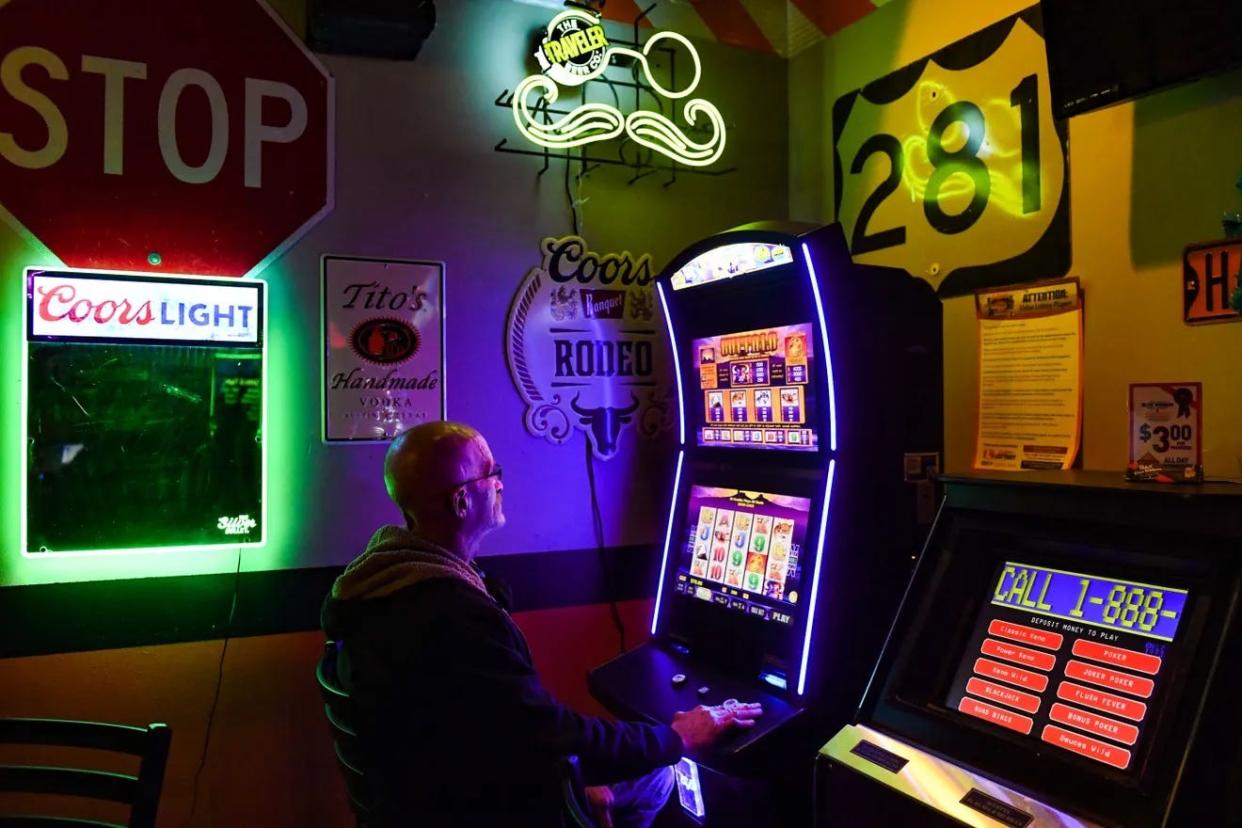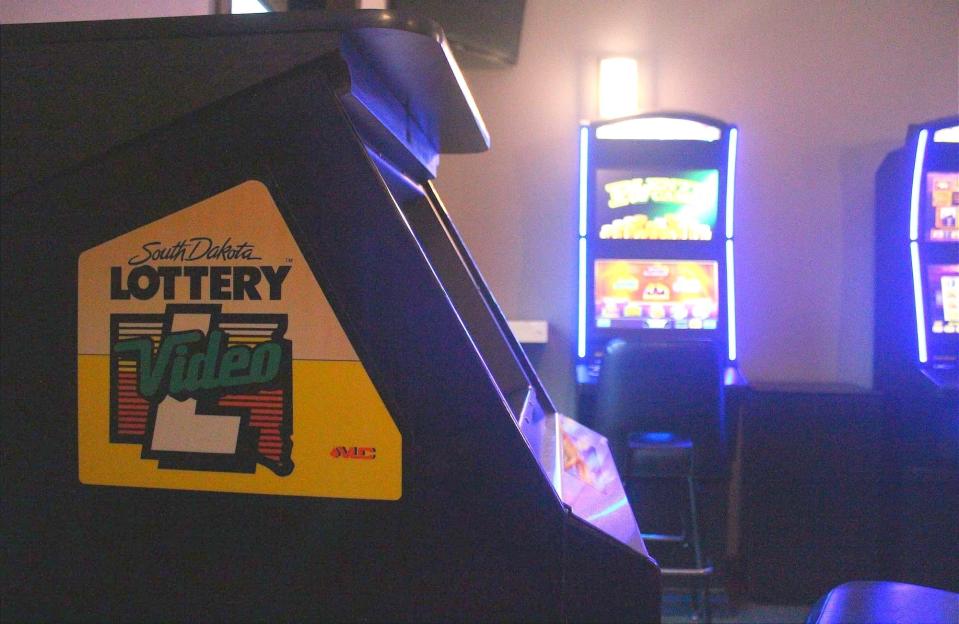South Dakota cities cap video lottery as state eyes betting increase

MADISON, S.D. – South Dakota keeps adding video lottery machines, with 567 more terminals and over $1.17 billion gambled this year, earning a record-setting $163 million in revenue for the state.
As the games continue their sprawl and the Legislature weighs an increase in betting limits, some South Dakota communities are trying to figure out a middle-of-the-road solution for the future of the 34-year-old games.
Rapid City, Aberdeen, Mitchell, Watertown, Yankton, and most recently Sioux Falls and Brookings, all have caps on video lottery licenses within city limits.
"The issue got to be that we were concerned with the growth of the casinos and I don't think anybody in the beginning had envisioned that as what we'd have in Brookings," City Councilor Wayne Avery told News Watch. "That we'd turn into a gambling center and have casinos in so many places."
Brookings passed its ordinance in July, capping licenses at 30 for its 26,377 residents, with one new license available for each 1,000 people added to the population.
Sioux Falls capped video lottery licenses at 186 last year for its 202,600 population, and there won't be more licenses until the population increases by 5,000 people.

"When you look at the intent when video lottery started, it was intended to be a supplement, like you'd have a restaurant with video lottery machines there," Sioux Falls City Councilor Rich Merkouris told News Watch. "It's kind of turned into stand-alone casinos."
Yankton is the latest city looking to reform its video lottery regulations after city commissioners were made aware that the current ordinance violates state law.
For an establishment to obtain a video lottery license, it must have a malt beverage, wine or liquor license. However, the City of Yankton only has jurisdiction over video lottery licenses attached to malt beverage and wine licenses, meaning liquor license holders can add a video lottery endorsement without city approval.
Yankton's cap, which is currently 39, will need to be lowered to 34 to align "with the existing number of retail malt beverage or wine issued licenses," city attorney Ross Den Herder said to the city commission at a Nov. 27 meeting.
Yankton commissioners must now find a path forward for video lottery that balances needs of new and expanding businesses, current license holders and the community at large.
Den Herder told commissioners the city's cap has raised the market value of a malt beverage license with video lottery endorsement to about $150,000.
"How do we protect that value for current endorsement holders who’ve spent well over $100,000 for their endorsements but still provide opportunity for the little guy?” Commissioner Mason Schramm asked.
At the Nov. 27 meeting, City Commissioner Ben Brunick suggested a cap that adjusts for population increases like the Sioux Falls and Brookings ordinances. But he was cautioned by Herder about unused video lottery endorsements attached to liquor licenses that could be "turned on" and increase the number of machines by dozens.
"I don't think we need any more machines than we already have," City Commissioner Brian Hunhoff told News Watch. "We're already a city with 350 machines and a potential to get 400 without doing anything."
Video lottery made up over $163 million, or about 91% of South Dakota’s total lottery revenue, with an average of 10,231 active machines in an average of 1,326 establishments, according to the 2023 report.
Just $214,000 goes to the Department of Social Services to support problem gamblers, an amount District 8 Sen. John Mills of Brookings said has been static for years.
North Dakota, which doesn't have video lottery, reported revenue of $11.28 million from its lottery in fiscal year 2023. The state's contribution to its compulsive gambling treatment fund is $320,000.
District 28 Sen. Ryan Maher of Isabel introduced SB-117 last year to increase the video lottery betting limit from $2 to $4 and increase the jackpot from $1,000 to $2,500.
"Essentially what it was doing was trying to help the retailers offset some of their costs to have video lottery and to help retailers in that industry pay for employees," Maher told News Watch. "Our minimum wage keeps going up every year and the cost of electricity isn't going down and the cost of propane isn't going down."
The bill failed in the Senate on a 18-17 vote, but Maher expects another attempt to raise the limits at the upcoming session.
South Dakotans have voted four times to keep video lottery since its establishment in 1989. The most recent measure to repeal video lottery in 2006 failed 67% to 33%.
"For every dollar the government takes from gambling enterprise, $3 are lost," Mills said. "The state government gets all of the money, but the negative impacts all happen at the local level."
Addiction experts say video lottery is the most addictive form of gambling due to the fast-paced nature of the games and the easy accessibility.
"The fact that there's so many machines in so many non-gaming locations means you come across machines all the time," said Keith Whyte, executive director for the National Council on Problem Gambling. "It's not like you're going specifically to gamble. You may be going to get groceries or to do other activities, and the machines are there as well."
Matt Walz, medical affairs specialist at Keystone Treatment Center in Sioux Falls, told News Watch that video lottery gambling and addiction is often related to other forms of addiction.
"There is a relationship right now in South Dakota between gambling and meth," Walz said. "We've had more treatment than ever now for meth addiction, and when we have meth patients, we ask them where they bought their meth. No. 1 answer the last few years has been at the casino ... typically the video lottery casinos."
Walz also said it’s rare for them to treat a compulsive gambling patient who has not attempted suicide.
"In terms of business ethics and business sense, it's always important to understand what are your revenues, which we do," Walz said. "But I don't think we know, as we would in most businesses, the expenses and costs. In South Dakota, I don't know we do such a great job of measuring and articulating the cost of video lottery."
— This article was produced by South Dakota News Watch, a non-profit journalism organization located online at sdnewswatch.org. Josh Linehan, managing editor of The Brookings Register, contributed to this report.
This article originally appeared on Sioux Falls Argus Leader: South Dakota cities cap video lottery as state eyes betting increase

